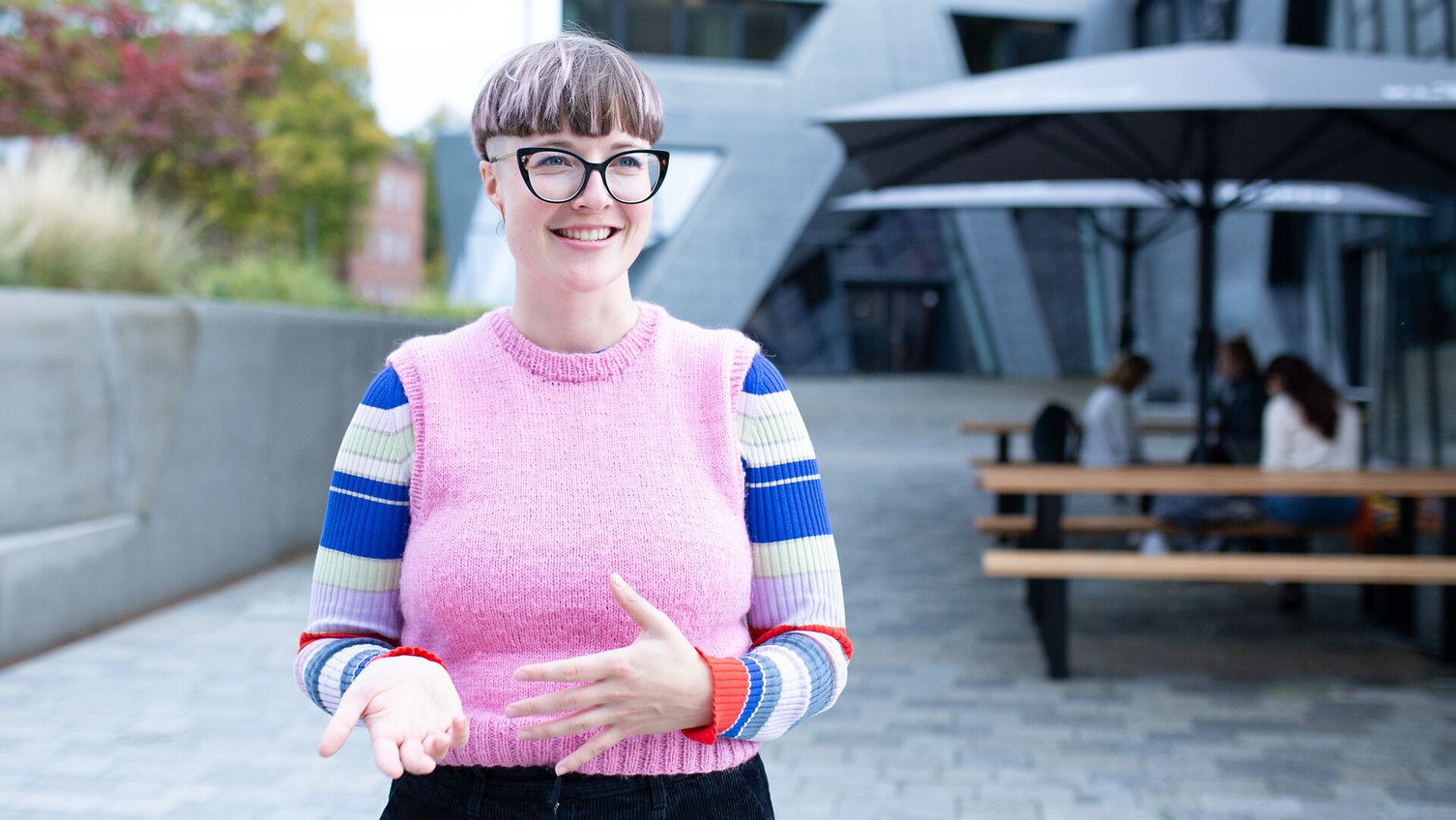Doctorate: Alexa Böckel – More paths for plastic packaging
2024-09-19 The doctoral candidate is conducting research on the circular economy and economic transformation. She published during her bachelor's and master's degree at Leuphana. Now, together with the German Reusable Packaging Association, she has raised 5 million euros from the BMBF and is one of the project leaders of the MEHRCE research project, in which her doctoral supervisor Prof. Dr. Steffen Farny is also involved.
Recup is considered Germany's largest reusable system for the catering industry: guests can take coffee cups or bowls with them in return for a deposit. ‘Nevertheless, borrowed plastic dishes pile up in tea kitchens, shared flats or offices,’ says Alexa Böckel. The doctoral student is researching young companies and start-ups that want to drive the transformation to a circular economy.
Her current project is concerned with the pitfalls of deposit systems: ‘Recup is a great example of circular strategies: the cups should stay in circulation for as long as possible. At the same time, the company has to consider the material. It has to be food-safe, withstand heat and not break when exposed to liquids other than coffee or tea. There are also psychological issues: how high does the deposit have to be for me to return the cup, and how low for me to still use the system? In addition, the system is logistically complex because the companies interact directly with a wide range of catering establishments,’ explains Alexa Böckel.
The doctoral candidate is doing her doctorate under the supervision of Prof. Dr. Steffen Farny, Professor of Business Administration, in particular Social & Sustainable Entrepreneurship. Prior to that, she completed a dual degree programme at Leuphana in Business Administration and in Environmental Sciences. She completed the Master's programme in Sustainability Sciences. During her studies, she had already published, for example, data from a term paper or from research projects in which she worked as a student assistant. ‘This experience is helping me a lot with my doctorate. I probably wouldn't have received as much support at a larger university. That's why I stayed loyal to Leuphana,’ explains Alexa Böckel.
Her doctorate also gives her a lot of freedom: Alexa Böckel is a scholarship holder of the German Federal Environmental Foundation and works as a researcher at the Wuppertal Institute, where she is also the project manager of the MEHRCE project. She was previously a research associate at the TU Dresden and headed the Social Change Hub at Leuphana. ‘I'm at the end of my doctorate and could finish, but I'd like to include a few more publications in the work. The financial support and Leuphana give me the opportunity to do so,’ she says.
Alexa Böckel not only wants to do a doctorate, she also wants to change the world with her research: ‘It is very unlikely that we will manage to avert the climate catastrophe. Nevertheless, I don't want to give up and I act according to the principle “Everything I do should be an improvement”.’ That is why Alexa Böckel decided to do transdisciplinary research: ‘I see myself as an engaged scholar. I want to make an impact – both in companies and in teaching. We work together with practitioners as equals and develop solutions together,’ explains Alexa Böckel. Her advice to prospective doctoral students: ’Choose a topic that is in line with your own values. I have found it for myself.’

